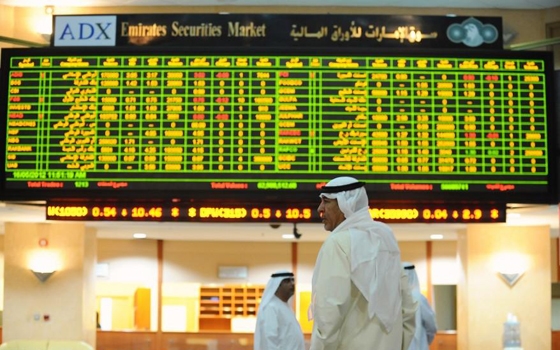As Abu Dhabi looks to develop its capital markets, it has again raised discussions of establishing a Gulf Derivatives Exchange, while an upgrade for the UAE to emerging market status is likely to boost the bourse’s international profile and attract more institutional investors.
The GCC-wide exchange was first proposed nearly a decade ago but was shelved in the wake of the global financial crisis, in part because risky derivatives trades were viewed as a main cause of the economic collapse.
"As a result [of the crisis] we decided to re-prioritize and shift [the exchange] back to its proper time. We're not close to it now, and we're delaying it until it's the right time,” Rashed Al Baloushi, the CEO of the Abu Dhabi Securities Exchange (ADX), told local media in 2010.
It is no surprise, then, that the prospect of a derivatives exchange is being approached with caution by investors and market administrators alike. However, many in Abu Dhabi have begun to argue that trading derivatives on a public platform would be beneficial. Over-the-counter trading – which many Gulf-based banks already engage in – is difficult to regulate and can be risky.
The derivatives discussion is making a comeback. According to Al Baloushi, the exchange is seeking input from industry players, and in June the ADX met with representatives from custodian banks at an event hosted by Standard Chartered in Dubai, where attendees included Citibank, Deutsche Bank, HSBC and the National Bank of Abu Dhabi.
While the development of a regional platform would likely take time and face a number of challenges – including technical and legal – in the more immediate term, the ADX could add derivatives to its own portfolio of products.
In 2012 Al Baloushi told OBG that the exchange was focused on equities but “would prefer to have a more diversified basket of options with derivatives and futures”.
According to Al Baloushi, expanding its offerings would be one part of a three-pronged approach to establishing Abu Dhabi as a regional financial center. Developing the equity market’s structure would be another facet, including implementation of international best practice and regulations, as well as technical developments such as automating transactions.
The final component would be to boost the participation of institutional investors, a goal that has now become much easier in the wake of the recent decision by New York-based MSCI to upgrade the UAE from frontier to emerging market status, set to go into effect in May 2014.
In a press release, MSCI pointed to a number of positive changes in the ADX and the Dubai Financial Market as reasons for the upgrade to emerging market status. These included a proper false trade mechanism, which was introduced in May 2013 on both exchanges, and a regulation governing stock borrowing and lending agreements, which is expected to be implemented in the coming months.
Both Abu Dhabi and Dubai markets rallied in response to the planned upgrade, with the former’s benchmark index rising by 2.7%, its biggest single-day gain since December 2009. As of mid-June, the ADX was up by nearly 40% since the beginning of the year.
"This will get some institutional investors from outside the region to lose their inhibitions and in many ways faulty thinking," said Antony Mallis, the CEO at Securities & Investment Co (SICO) in Bahrain, told Reuters.
More institutional investors would deepen the ADX and signal its growing maturity, a process that would be facilitate and hastened by the addition of derivatives to its product offerings.
Oxford Business Group
16 July
























































